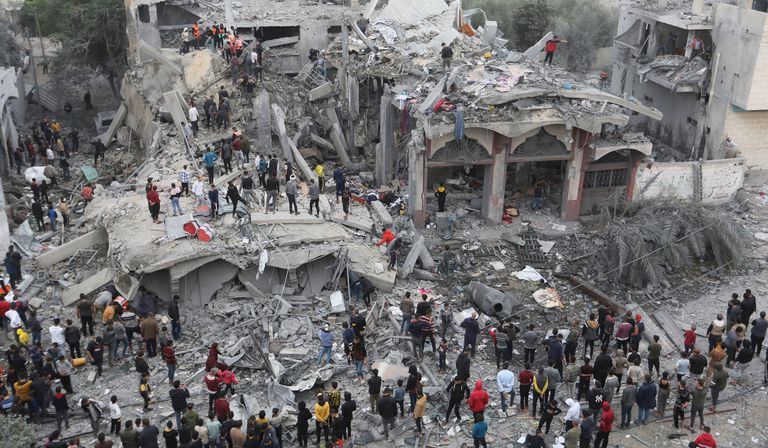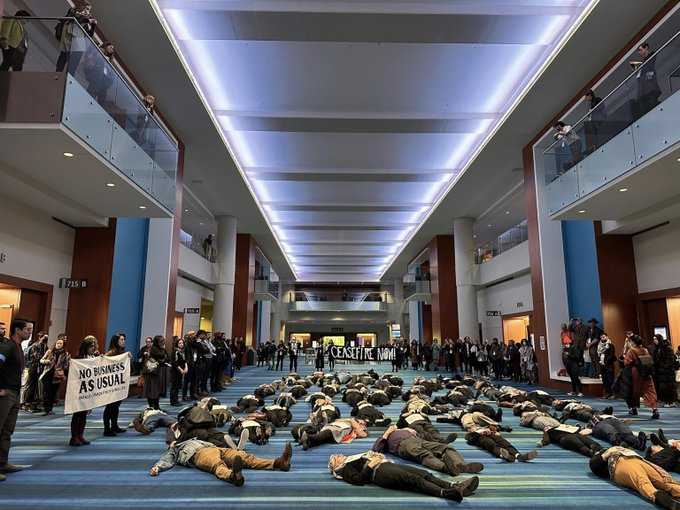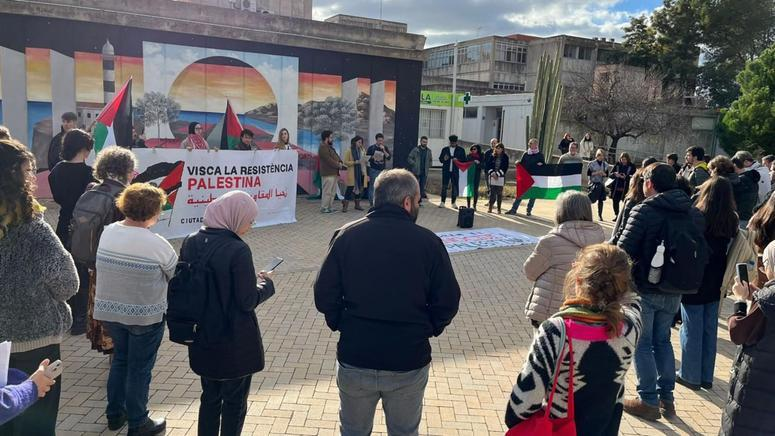
Anthropology facing ethnic cleansing
A few years before his death in 2015, David Graeber visited the West Bank. A Jew raised in New York in a family "completely immersed in Zionist propaganda," the anarchist anthropologist was not only struck by the flagrant violations of human rights by the Israeli army but also by how each daily action was terribly difficult for the Palestinians. The provocations are daily, ugly, and humiliating, yet they are designed to remain below the level of blatant and undeniable aggression," he writes. It's akin to the schoolyard bully who continually pushes, shoves, and kicks his victim in the hope of provoking an outburst of futile anger, which ends up dragging him in front of the principal. In Nablus, there is no water, and there are always queues. It takes eight hours by car to drive twenty kilometers. Soldiers wave their machine guns in front of your nose, shouting in a language you don't understand. Something breaks, and you are not allowed to repair it, or you can't find the parts. You can't make phone calls, you can't go to the beach, and if a boy tries to swim in the sea, he risks being shot. At the checkpoint, they let the tomatoes you were supposed to sell rot. They arrest your son, and you beg the military to release him, and they arrest you too, to force him to confess that he threw a stone. Eventually, you find yourself in a cement cell, with no cigarettes and a clogged toilet. "And you realize that you will live like this forever, that there is no peace process, that this terror and absurdity will last your whole life."
In Palestine, Graeber identifies with the "other side" to the point of understanding why Israel's image, for most of the world, has transformed "from a group of idealistic Holocaust survivors who wanted to make the desert bloom, to a bunch of rabid fanatics who have turned techniques for brutalizing 12-year-olds into science." Many factors can lead the son of a Zionist family to identify with those oppressed by Israel in the occupied territories, along the lines of that current of Jewish thought still expressed in organizations like Breaking the Silence or Jewish Voices for Peace. His political contacts with anarchists undoubtedly contributed, but so did anthropology—the science of empathy, understanding, and mimesis. In 1851, the anthropologist Lewis Henry Morgan, seeking to oppose the ethnic cleansing of the Iroquois by European settlers, wrote: "It is no small crime against humanity to seize the homes and property of an entire community, without compensation and against their will, and to drag them impoverished and enraged into a wild and inhospitable land." A wild and inhospitable land, like the desert surrounding Rafah, where hundreds of thousands of Palestinians have been deported pending their expulsion from Gaza. The Iroquois had also committed "atrocities" against the Huron and, of course, against the white settlers. However, this did not stop Morgan from denouncing the "crime against humanity" of their ethnic cleansing by the community to which he belonged.
Today, we acknowledge the genocide of Native Americans that occurred a century ago, but recognizing ongoing events proves challenging. The two months of massacres in Gaza were met with press releases, signature collections, and global public stances, notably within the academic community, especially among social scientists. However, these efforts faced staunch resistance, revealing a concerning trend: academic institutions, like a closing hedgehog, are betraying their intellectual mission and disciplinary foundations. A week after the Hamas attack, nine hundred academics globally signed a text warning of the "potential genocide" in Gaza. Anthropologist Didier Fassin later expressed concern in Le Monde about French authorities' double standards and dehumanizing discourses toward Palestinians, sparking a "sad debate." The University of Ghent in Belgium collected over two thousand signatures against the Israeli campaign in Gaza since October 10. Subsequently, the Middle East Studies Association of North America, the American Studies Association, and numerous global study and work organizations issued statements against civilian killings and for freedom of expression. Some, including Jewish Voices for Peace and the Jewish Anti-Racist Laboratory in Italy, are of Jewish origin.

In early November, nearly 600 researchers and professors from Irish universities urged all Irish universities to "immediately sever any association or institutional affiliation with Israeli universities" until the Palestinian occupation ends and their rights are respected. Later, over 900 academics from Aalborg University and other Nordic universities called for a ceasefire and a boycott of Israeli universities. The Faculty of Ethnic Studies at San Francisco State University echoed this, but universities contacted did not respond. Questions arise about the effectiveness of petitions and condemnations. For instance, a petition by two thousand students and professors at Oxford University or the condemnation of Israel by forty philosophers at the same university may seem futile when Oxford received seventeen million pounds from companies producing weapons for the Israeli army. A recent report highlights that Lockheed Martin and other arms companies have donated over a hundred million dollars to UK universities, often tied to corporate secrecy. However, successes are possible; the University of Johannesburg severed ties with Ben Gurion University in 2011 due to its involvement in Israel's military occupation of Gaza. Recently, the Royal Melbourne Institute of Technology declared an end to collaboration with Elbit Systems, Israel's leading arms manufacturer.
Anthropology emerged as the pioneering discipline that resisted apartheid policies and the extermination of the Palestinian people, predating the explicit goals of the Israeli state to annex Gaza and displace millions. Originally conceived as a colonial science to reinforce the dominion over conquered populations, anthropology has been practiced by individuals who, while engaged in the field, decried the complicity of their armies and universities in conquest and colonization. In recent decades, numerous indigenous researchers of colonized communities have embraced anthropology. Presently, many young anthropologists view it as an essential tool for comprehending the inequalities affecting their societies. The discipline's evolution toward social critique, public advocacy, and political involvement is evident, exemplified by events such as the 2008 seminar on "engaged anthropology" and the initiatives of the Italian Society of Applied Anthropology.
The American Anthropological Association (AAA), with a membership of twelve thousand, serves as a cornerstone for anthropology. The 2023 annual meeting, held in Toronto during the commencement of the Israeli offensive, witnessed a poignant demonstration. A group of AAA-appointed anthropologists took turns reading aloud the names of thousands killed in Gaza, signalling the association's condemnation of the ongoing massacre. The AAA actively opposes the militarization of anthropology, evident in its 2007 expulsion of anthropologists involved in the military operation Human Terrain in Afghanistan. Collaboration with the military contradicts the discipline's ethics, emphasizing respect for the communities studied, the imperative not to cause harm, and maintaining a significant distance from those seeking destruction. According to the AAA's statute, anthropology's purpose is "the promotion and protection of the right of all individuals and peoples to the full realization of their humanity." After nearly a decade of deliberation, in July 2023, a seventy-one percent majority approved a resolution for an academic boycott of Israeli universities.

In contrast to the expulsion of military anthropologists and the 1958 boycott against South Africa, the academic boycott of Israel does not target individual researchers. They retain the ability to engage in international activities. The boycott targets institutions collaborating with apartheid and violating international law. Israeli universities, rather than being spaces for dialogue, contribute to the development of technologies and military doctrines justifying the colonization of Palestine. Recently, Tel Aviv University issued a call to 'join its war effort.' The boycott inevitably impacts the freedom of individual academics, jeopardizing their international projects and isolating them. This is particularly severe for Palestinian academics, facing nearly insurmountable obstacles due to Israeli military occupation, as highlighted by the association Jewish Voices for Peace. The boycott is also championed by Israeli academics opposed to the occupation, who, fearing reprisals, often choose to remain anonymous. In 2008, Israeli historian Ilan Pappé stated, "We will leverage civil society's support for Israel to become a 'pariah' state as long as this policy persists, allowing constructive dialogue to create a political structure that absolves us from living in conflict and facilitates building a better future."
In October, the European Association of Social Anthropology (EASA), the largest anthropology association in Europe boasting approximately 1,300 members, issued a statement on Gaza. The association joined the likes of the UN, WHO, Red Cross, Amnesty International, Oxfam, Human Rights Watch, Médecins Sans Frontières, and numerous other humanitarian organizations in urging an immediate ceasefire and adherence to international treaties. The anthropologists not only echoed the familiar calls of these prominent entities but also responded to a plea from Palestinian Birzeit University. In their letter, the university called on academics worldwide to "seek the truth, maintain a critical distance towards state propaganda, and demand accountability from the perpetrators of genocide and their accomplices." The EASA statement explicitly denounced the "genocidal formulation of Palestinians as guilty, 'human animals' deserving of collective punishment." It further criticized European governments for their support of "war crimes against international law" and repressive measures targeting Palestinian students or those expressing solidarity with Palestine at universities. The statement expressed concern over the unacceptable suppression of dissent toward violence and war, asserting that such actions were fundamentally incongruent with the educational objective of fostering critical thinking among students and the public. Concluding the statement, the EASA called upon the academic community to fulfill its duty to "speak truth to power."
Although the statement does not explicitly mention the boycott, the EASA president received several letters of protest. The president of the Israel Anthropological Association questions, "Were you not aware of the atrocities committed on October 7 in Israel?" He further inquires whether these actions can be deemed commendable acts or described as acts of popular resistance, and whether Israel has the right to protect its citizens. The BaShaar Academic Community for Israeli Society enumerates Hamas atrocities, including the torture of parents in front of their children, the torture and mutilation of children, murders, beheadings, burning alive, brutal removal of fetuses from pregnant mothers, rape followed by murder of women, burning of families, and the triumphant display of corpses before crowds. Some of these accusations have already been proven false. However, it is noteworthy that the October 7 attacks are considered "unspeakable acts of terror that are pure evil" in the language used by President Joe Biden.
President Biden characterizes these actions as "purely diabolical," yet anthropology, born to oppose the demonization of the enemy, aims to affirm the universality of humanity even for those on the extreme margins of dominant values. An Italian anthropologist presented a lengthy video interpreting the Hamas attacks as an outcome of radical cruelty and hatred of life intrinsic to the Muslim religion. This instrumental use of religion is termed cultural essentialism and is fundamentally contrary to anthropology, analogous to creationism for astronomers. The final declaration of an anthropology congress in Barcelona in 2002 states, "Discrimination, segregation, and marginalization are today essentially 'cultural.' Where once we spoke of 'inferior races,' today we speak of cultures 'incompatible with our values.'" The media is criticized for continuously using the concept of culture to trivialize and simplify some social conflicts, insinuating that their causes are, in an obscure way, linked to the cultural adherences of the involved parties.
Two hundred anthropologists from across Europe have composed a letter expressing their support for EASA, urging the establishment of a working group to monitor the "increasing restrictions on academic freedom" for critics of Israel's policies. When Shahram Khosravi, a prominent Iranian anthropologist, shared this letter on a social networking site, his post was initially censored but later restored after he brought attention to the matter. Similar incidents occurred with other signatories of the statement. Meanwhile, the anthropology associations of Greece, the Basque Country (Ankulegi), Catalonia (the Institut Català d'Antropologia), and the Balearic Islands (IAI) have issued statements condemning the genocide in Palestine. The anthropology department of the University of Barcelona has unsuccessfully requested the cessation of all collaboration with Israeli universities. In Italy, 4,500 members of academic communities and research centers have penned an appeal for a ceasefire and respect for international law in Palestine. This appeal was sent to the Minister of Foreign Affairs, Research, and the rectors. Additionally, professors at the University of Milan have written to the rector, urging them to support calls for a ceasefire, but without success. The three main Italian anthropological associations - SIAC, ANPIA, and the board of SIAA - along with forty anthropologists, have collectively stated, "We feel compelled - they write - to take a stand in the face of a crisis that has arisen and developed over decades of injustices, illegal occupations, severe discrimination, arbitrary arrests, and spatial segregation. As Italian anthropologists, we recognize ourselves as heirs of one of the founding fathers of the discipline, Ernesto De Martino, who, following Antonio Gramsci, asserted that intellectuals must take a stand."

Today, academic boycott stands as one of the most widely practiced non-violent tools in response to the significant power imbalance between the Palestinian people and the Israeli occupation, supported by one of the world's most powerful armies but facing waning international legitimacy. However, academic structures appear to be immune to the global urgency to halt genocide and ethnic cleansing, as they are entwined with the military industry and war lobbies. In a book on the boycott, Australian researcher Nick Riemer argues that, despite numerous victories, "in the politics and culture of university education, almost everything attempts to prevent academics from boycotting Israel," such as job loss or the loss of leadership positions for those supporting Palestinian rights. As an Oxford University report also indicates, the Israeli government is compelled to publish manuals and organize online workshops on how to present the conflict favourably to gain support for its policies. The Foreign Ministry employs "cyber troops" to influence the media, seeking to isolate those opposing its military campaigns, those organizing demonstrations or events for Palestine, and those promoting petitions or actions to halt the genocide.
However, these remarkable gestures persist and multiply, despite attempts to label them as anti-Semitism or a "defence of terrorism." It is crucial for those engaged in research and knowledge production to foster their growth. Yielding to fear and isolation would signify surrendering the very essence of intellectual work. In the conclusion of his article recounting his journey to the West Bank, David Graeber recognizes the significance of hospitality for Palestinians. He reflects on the profound impact it must have had on them to witness the initial Zionists in Palestine seizing their land, demolishing their villages, and committing atrocities against their people. Reflecting on the predicament, he writes, "In such a situation, what options remain? Cease to be generous? Yet, this would result in a complete and existential defeat. People have been systematically stripped of the physical, economic, and political means to be generous. Deprivation of the means to make such extraordinary gestures equates to a form of lifelessness."
Original Italian in Monitor: https://www.monitor-italia.it/
Spanish translation within the OACU blog: https://observatoriconflicteurba.org/la-antropologia-frente-a-la-limpieza-etnica/